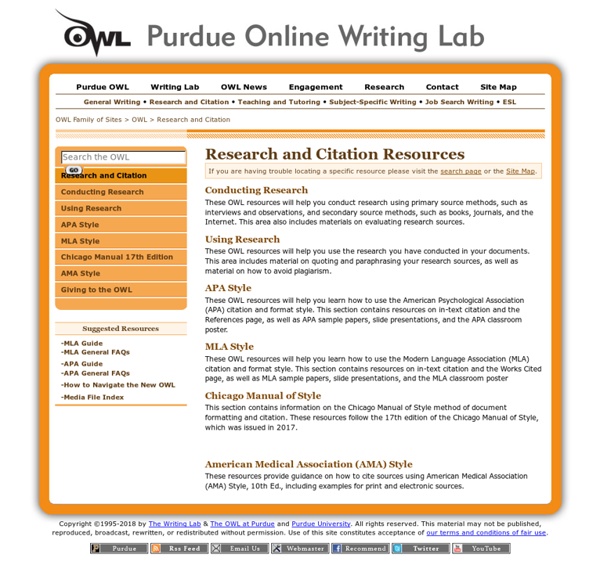Ink on Paper: Some Notes on Note-taking | Wray Herbert
I went to college long before the era of laptops, so I learned to take notes the old-fashioned way: ink on paper. But that does not mean my note-taking system was simple. Indeed it was an intricate hieroglyphic language, in which asterisks and underscoring and check marks and exclamation points all had precise meaning, if only to me. It's a lost art. But has anyone actually compared the two? Of course, students could develop an elaborate hieroglyphic system using a laptop. They ran a few experiments, all basically the same. This experiment provided preliminary evidence that laptops might be harmful to academic performance. At least right away. The scientists tried to simulate this in another experiment. The findings, which Mueller and Oppenheimer describe in a forthcoming issue of the journal Psychological Science, were a bit surprising. The scientists had an additional, intriguing finding.
Conducting Research
These OWL resources will help you conduct research using primary source methods, such as interviews and observations, and secondary source methods, such as books, journals, and the Internet. This area also includes materials on evaluating research sources. Research Overview We live in an age overflowing with sources of information. Conducting Primary Research Primary research involves collecting data about a given subject directly from the real world. Evaluating Sources of Information Evaluating sources of information is an important step in any research activity. Searching the World Wide Web This section covers finding sources for your writing in the World Wide Web. Internet References This page contains links and short descriptions of writing resources including dictionaries, style manuals, grammar handbooks, and editing resources. Archival Research This resource discusses conducting research in a variety of archives.
Format & Generate Citations – APA, MLA, & Chicago
Guide to Copyright and Fair Use
A five-part series When it comes to copyright law and the application of fair use exceptions, ignorance is definitely not bliss! Learn how to educate yourselves and your students and avoid making a costly mistake! You really did plan to find time over the summer to familiarize yourself with the latest information on copyright law. You absolutely intended to look up the fair use guidelines for using technology resources. So now you have a student who wants to include audio of a Beatles song in a multimedia presentation about the 1960s, another who wants to include the poem "Casey at the Bat" in a report on the World Series, and a third who wants to post photographs of Biden and Obama to the class Web site. What's an educator to do? Click Part 1: Copyrights and Copying Wrongs below to begin. Who Said That? Article by Linda Starr Education World® Copyright © Education World
Research and Citation Tools for Students
Jump to navigation Updated Privacy Policy Donate Check out what's new in: Bookmark Related Top Picks Displaying 1 - 9 of 9. Best Apps for Kids with Autism Find tools to help kids build important social and communication skills. Grades Pre-K - 12 English Language Arts Communication & Collaboration, Character & SEL 10 Best ELA Tools for Middle School 10 top-rated apps and websites for the middle school ELA classroom. Grades 6 - 8 English Language Arts, English Language Learning Communication & Collaboration, Tech Skills Best Common Core ELA Tools for High School Outstanding high school-level apps, games, and websites aligned to ELA Common Core standards. Grades 9 - 12 Communication & Collaboration, Creativity, Critical Thinking Best Common Core ELA Tools for Middle School Magnificent middle school-level apps, games, and websites aligned to ELA Common Core standards. Communication & Collaboration, Critical Thinking Best Common Core ELA Tools for Elementary Schoolers Grades Pre-K - 5 Grades 2 - 12 See All Top Picks



